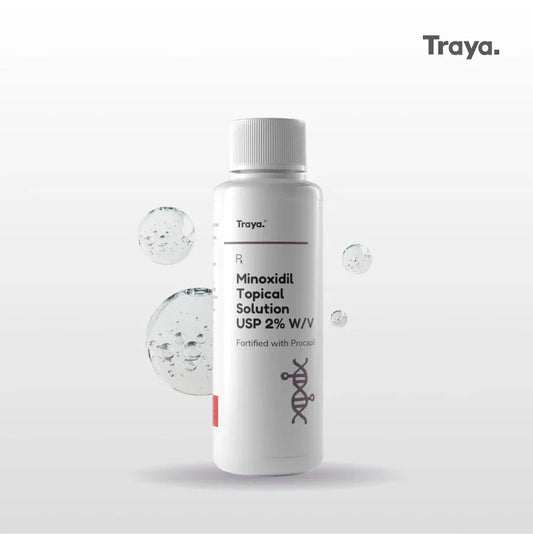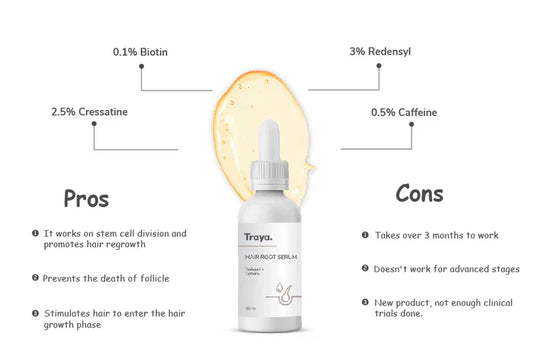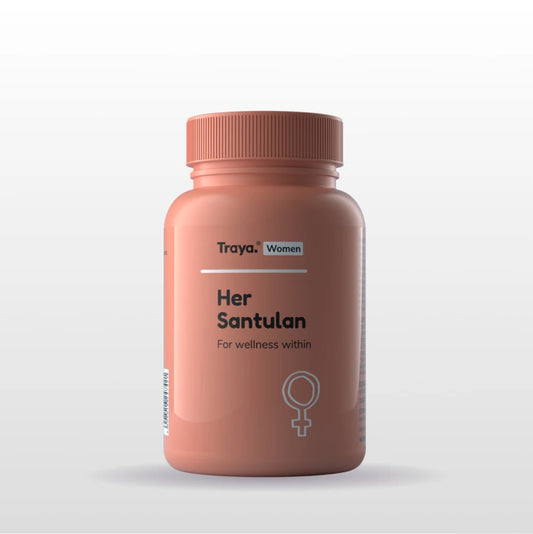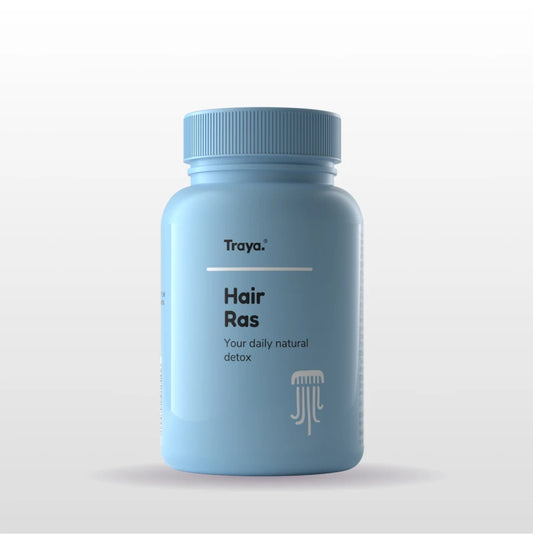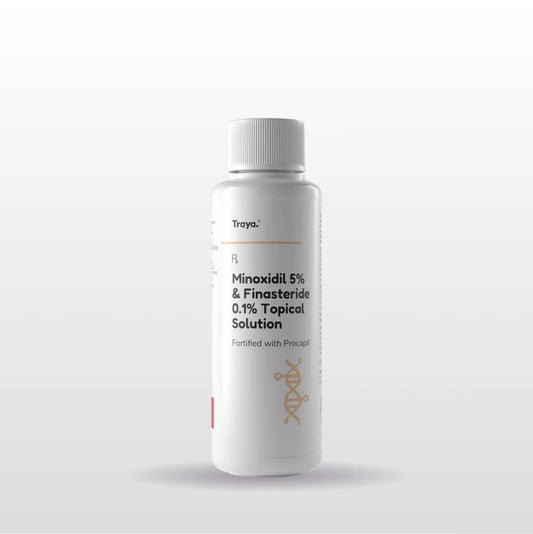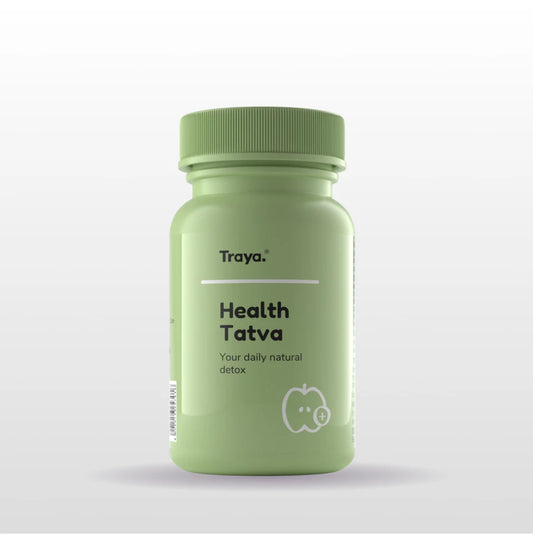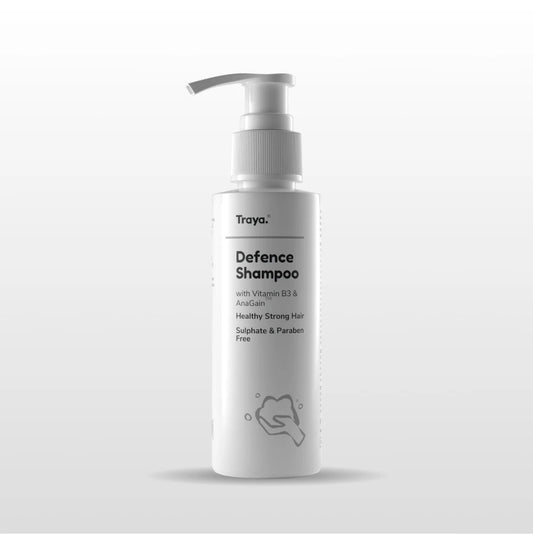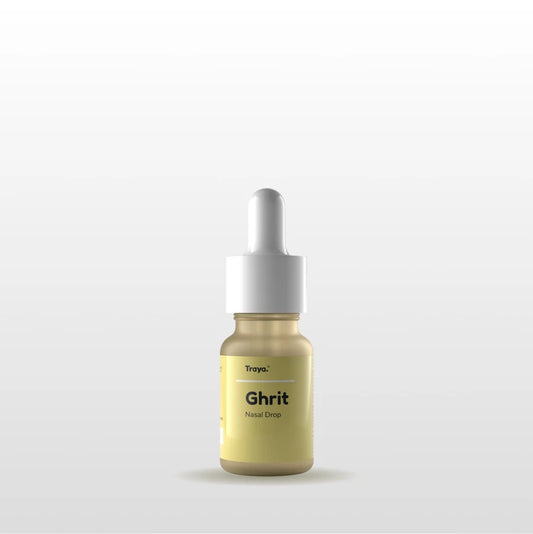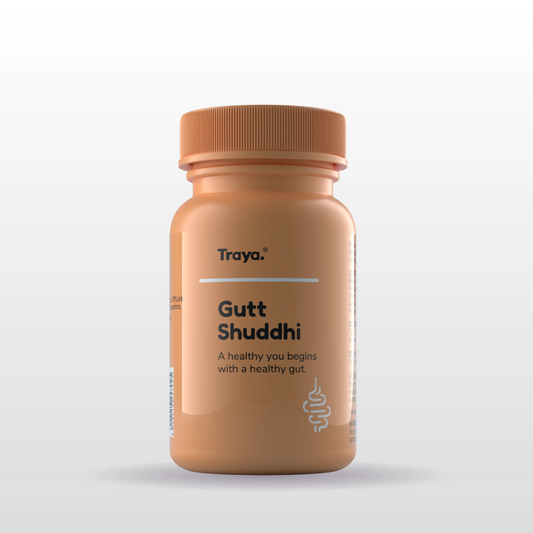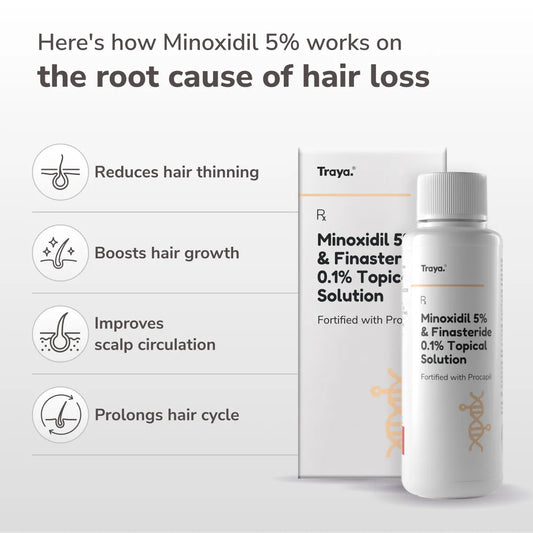
Minoxidil vs Redensyl: Which Works Better for H...
Are you confused between Redensyl vs Minoxidil for hair growth? You’re not alone. With hair loss becoming increasingly common among both men and women, many people are on the lookout...
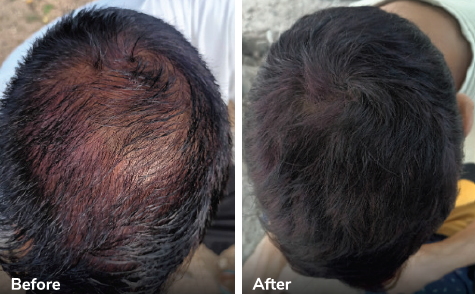
How to Use Minoxidil for Hair Growth
Struggling with hair thinning and wondering how to use Minoxidil for hair growth effectively? You’re not alone. Whether you're just starting treatment or haven’t seen the results you hoped for,...
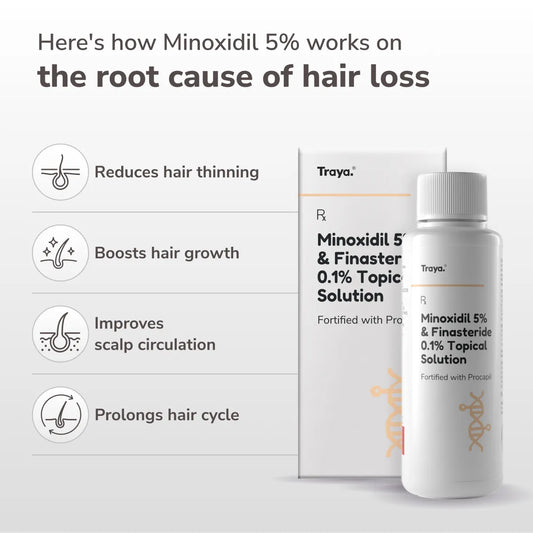
Minoxidil for Hair Regrowth: Real Science, Real...
Hair fall rarely begins with a dramatic clump in your hand. It starts slowly. Maybe a few more strands on your comb. A slight widening of your part. A moment...
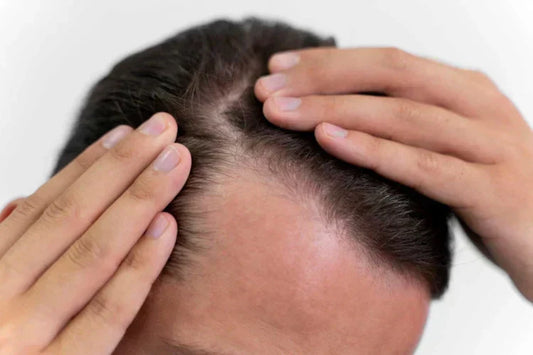
Hair Fall in Your 20s? Here's How Minoxidil Can...
Hair fall in your 30s? Understandable. But in your 20s? That catches you off guard. You're not imagining it - hair fall is getting more common, and not just in...
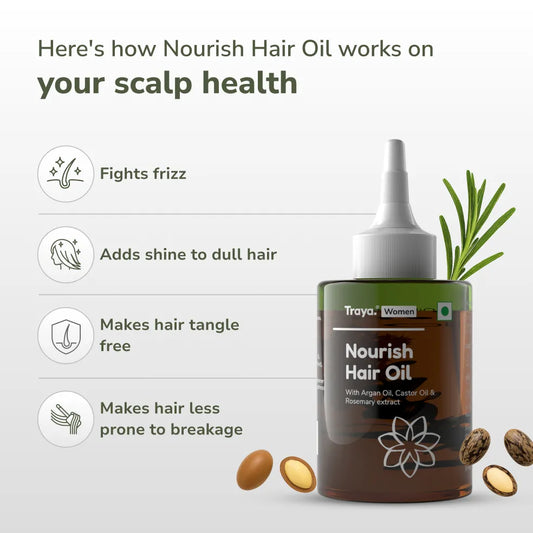
Top Oils Backed by Science for Hair Regrowth
If you're looking for the best hair growth oil recommended by doctors, chances are you've tried a few already, maybe coconut, rosemary, or a DIY blend passed down through generations....
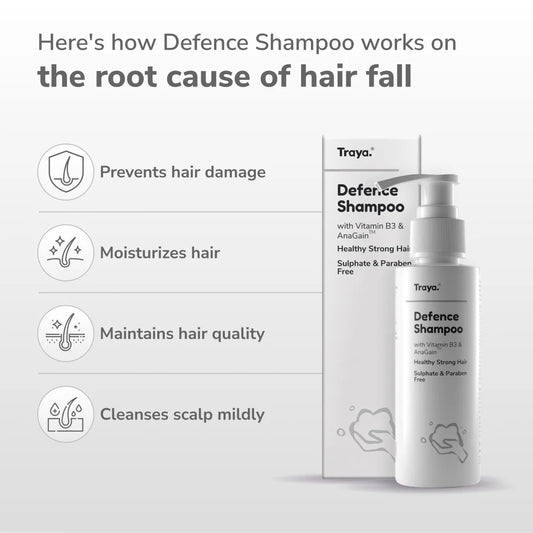
Why the Best Shampoo for Hair Fall Isn't Enough...
A thinning braid. Extra strands in the shower. A scalp that’s becoming harder to ignore. It might feel like a surface issue, but hair fall is often your body’s way...
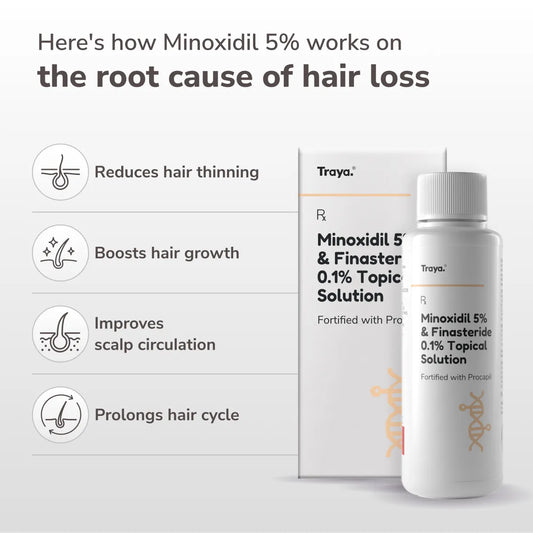
Minoxidil: Benefits, Side Effects & Who Should ...
Hair loss is something a lot of us deal with these days, whether you’re a man or a woman. And finding the right fix? That’s the tricky part. Sometimes, the...
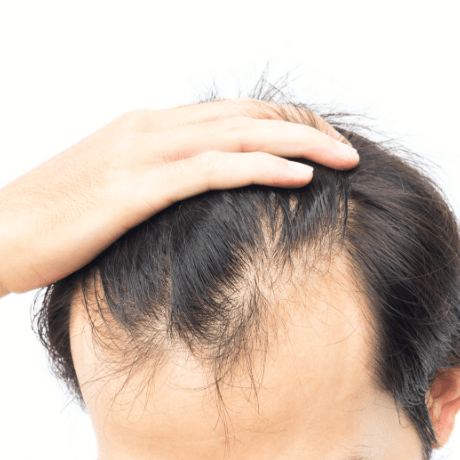
How to Stop Receding Hairline? 4 Best Treatment...
A receding hairline can cause anyone to feel anxious about their hair. Questions like, “Am I getting Bald?” and “Is this the beginning of losing all the hair?” creep into...

Hair Fall Risk Test: Find Out How Severe Your H...
Tired of constant hair fall? Tired of looking up different causes and reasons behind it? Stressed about hair fall being noticeable? Do not worry, Traya is here to help! Hairfall...
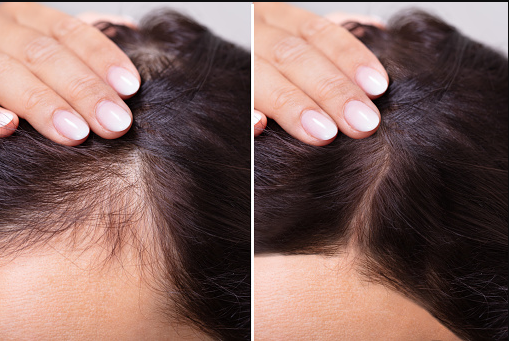
Hair Loss Treatment in India | Holistic & Prove...
As the home of Ayurveda, India has always been at the center of Medical Treatments all across the world. Since ancient times, Indians have managed to deal with medical ailments...
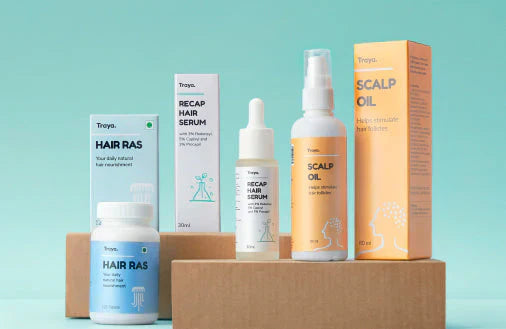
Hair Fall Treatment in India | Ayurvedic & Medi...
Let me guess, you must be worried sick about the hair you saw on your pillow this morning. Or every time you walk past a mirror you sneak a peek...
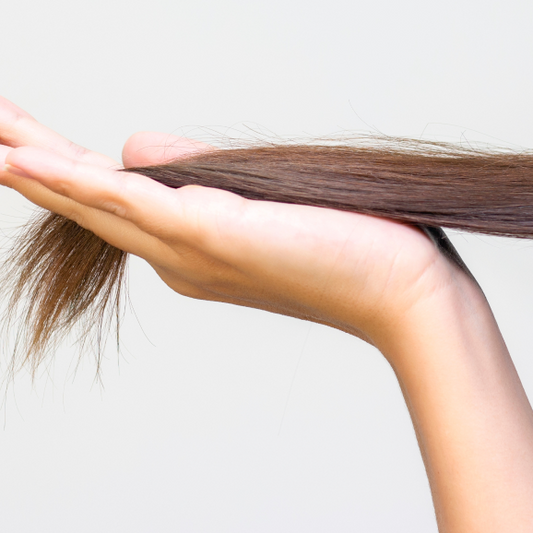
How to Regrow Thinning Hair in Females: Causes,...
Although male baldness is more infamous, women suffer through it too. Just because they are well-hidden does not mean that women have not been silently trying to find solutions for...
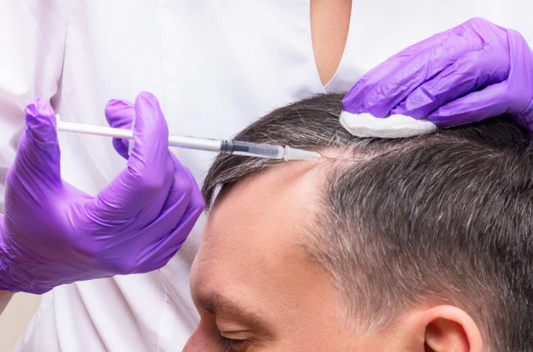
Hair Loss Treatment for Men | Age-Wise Guide
Men's hair loss has been on the rise these past few decades. Increasing levels of stress and unhealthy lifestyle habits have led to a lot of men to start suffering...
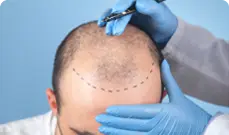
Best Treatment for Hair Thinning in India | Tra...
If you wake up everyday, look at yourself and wonder "What can I do?” has become a part of your daily routine, you are at the right place. If you...
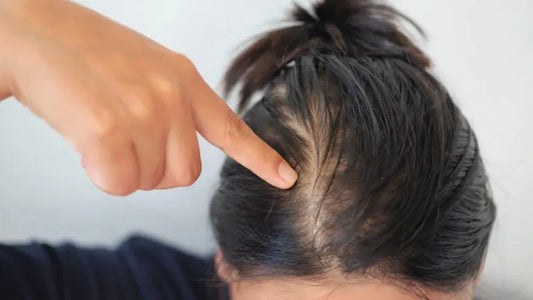
Causes of Hair Loss in Women and How to Treat I...
Hair loss in women is more common than most of us think, and more emotionally exhausting than it’s often portrayed. By the age of 50, nearly 40% of women experience...
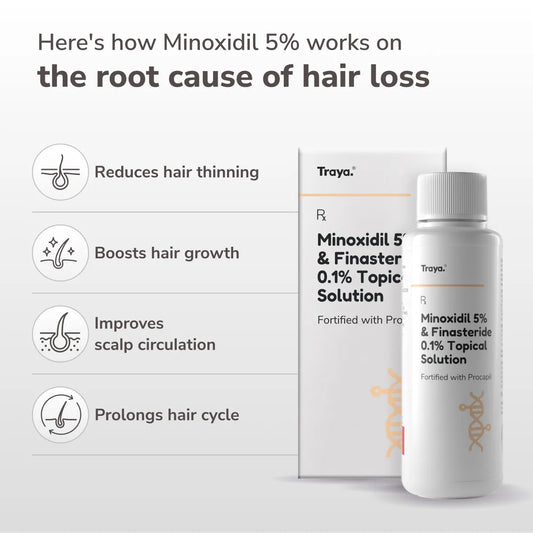
Does Minoxidil Work? Uses, Advantages, Treatmen...
Minoxidil is usually prescribed by doctors for hair growth, which is fine as long as there is supervision. But starting this treatment on your own is not generally advisable. It’s...
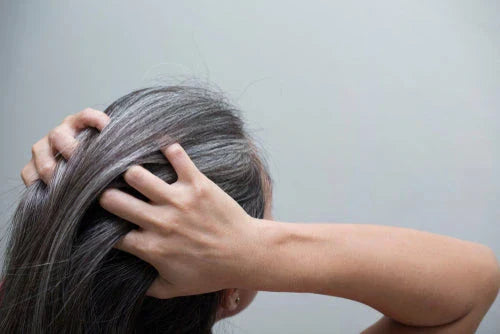
How to prevent white hair, delay greying and ha...
When people think about hair health, they often focus on strands—whether they are falling, thinning, or greying. But what many overlook is the foundation of hair health: the scalp. Scalp...
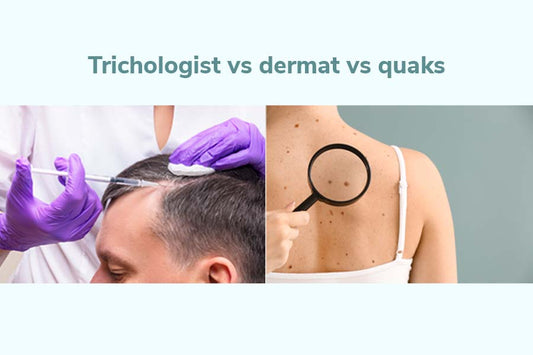
Dermatologist or Trichologist: Who should I go ...
Dermatologist or Trichologist ? Who Can Help You With Your Hair Loss Problem? Hair loss is a common hair problem, and you need a dermatologist or skin doctor to take...
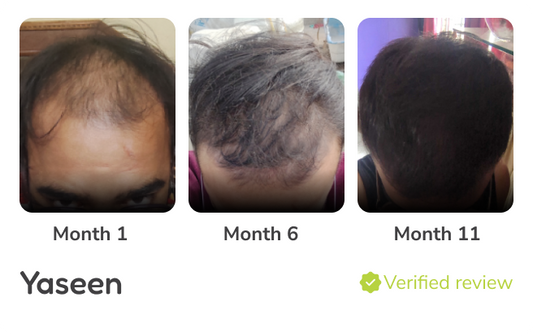
Minoxidil Results - Before and After | Results,...
Minoxidil is a popular FDA approved medication used for hair regrowth. There are many claims about minoxidil working for most people and it is also proven for showing positive results....
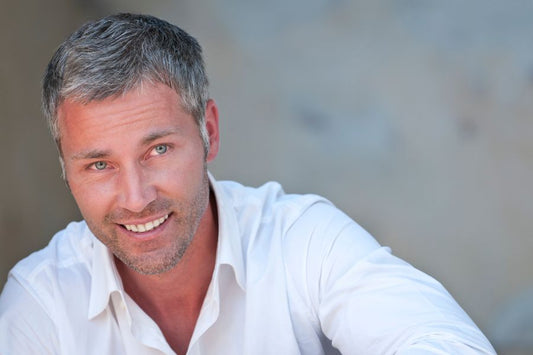
Stop Grey Hair Using Ayurveda
4 min read

Redensyl vs Minoxidil : What should I use for m...
Traya’s study highlights a concerning trend: 50.31 Percent of Indian Men Facing Hair Loss Are Below 25 Years of Age. These statistics were brought to light by staggering statistics with...
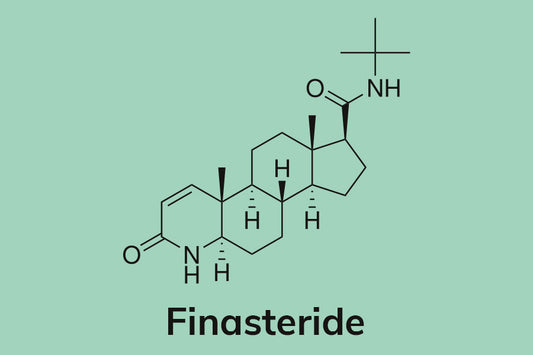
Uses of DHT blocker for Hair Loss
3 min read
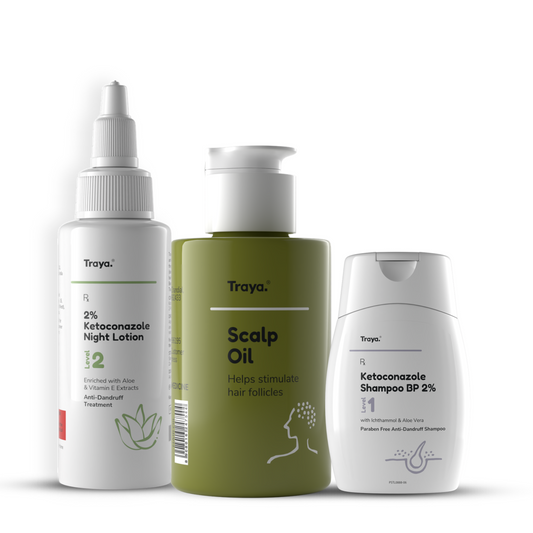
Top 10 Best Oil to Stop hair fall and regrow ha...
Hair oiling has been a trusted practice for centuries in India , and modern research backs its effectiveness. A study concluded that 70% of their participants who had applied oil regularly...
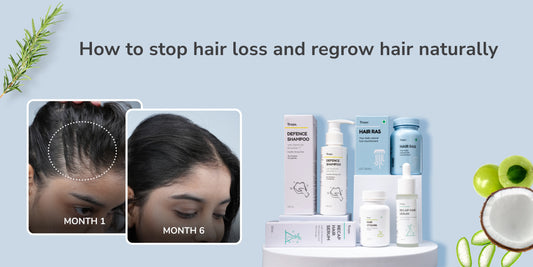
How to Stop Hair Loss and Regrow Hair Naturally...
3 Min Read The answer to “How to stop hair loss and regrow hair naturally” isn’t simple because well, regrowing hair in 3 weeks sounds ambitious. However, one can surely...
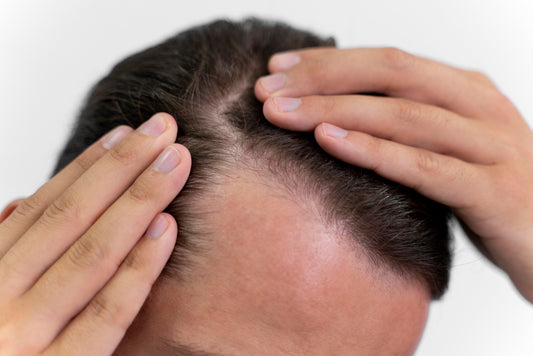
How to Regrow Hair on Bald Spot Fast
Thinning hair or bald patches are frustrating, often affecting one’s confidence and peace of mind. You're not alone in this journey, and the good news is that there are effective...
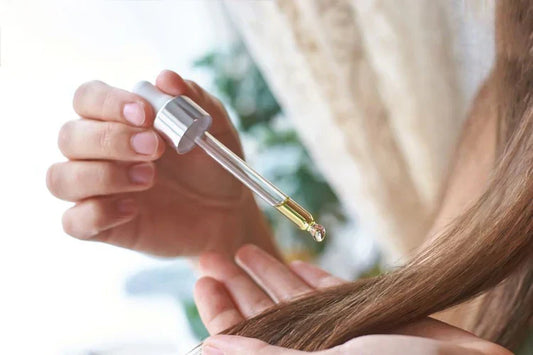
12 Best Hair Growth Oils Recommended by Doctor ...
3 Min Read Oil is an important aspect of hair care as it not only nourishes your hair and scalp but also helps in the blood circulation. Our scalp produces natural...
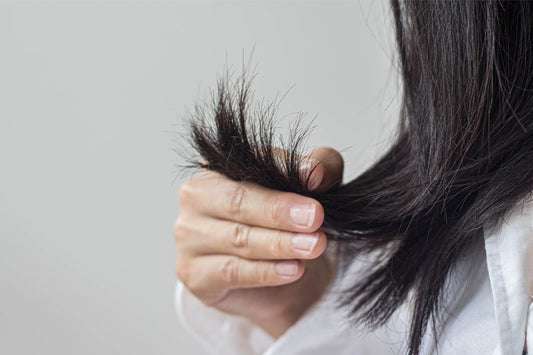
Side-effects of Ketoconazole Shampoo
4 min read

What happens after you stop using Minoxidil?
3 min read
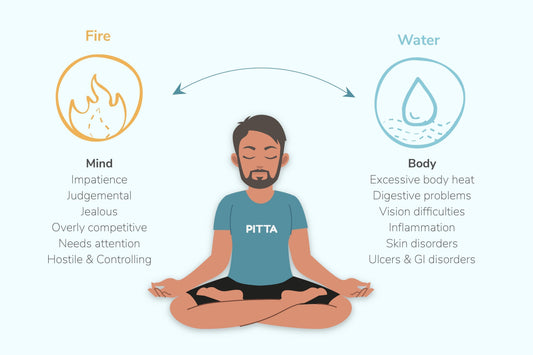
Can pitta dosha cause hair fall?
4 min read
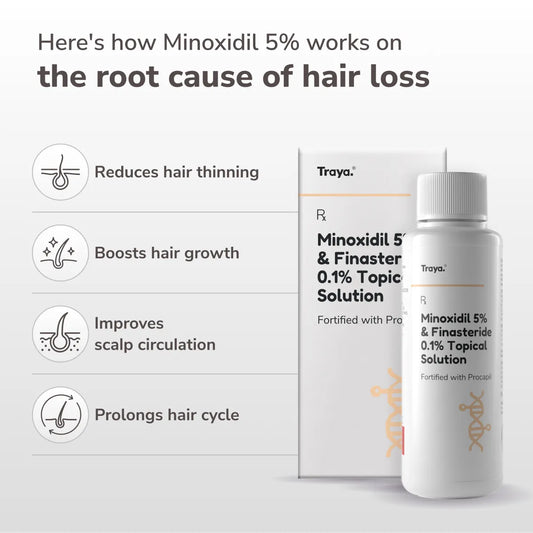
Minoxidil vs Finasteride: Which Hair Regrowth S...
Traya vs. Minoxidil & Finasteride: The Ultimate Hair Regrowth Solution Finding the right solution for hair regrowth is a struggle! And we get that. Many people go through a trial-and-error...
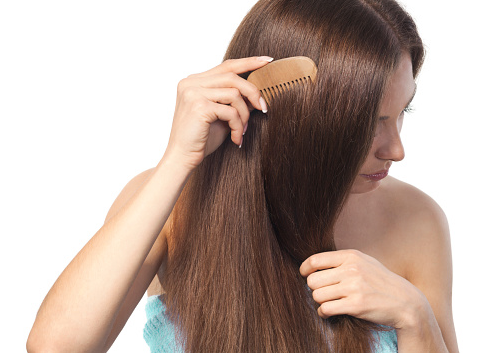
How to Grow Hair Faster Naturally in a Week
We’ve all had a phase where our hair looked its best — thick, shiny, and perfect for any hairstyle. Back then, simple, consistent hair care practices like regular oiling, gentle...
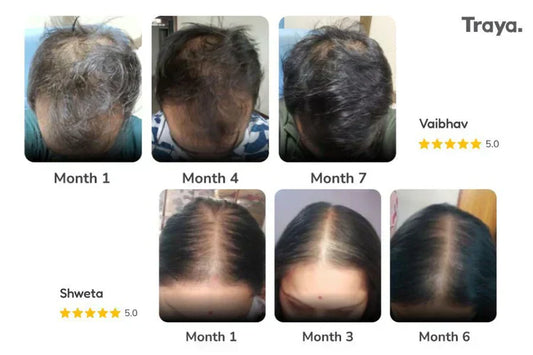
Real Success Stories: Hair Regrowth Naturally w...
Hair loss isn’t just about hair. It’s about how you feel when you look in the mirror. It’s the feeling when you run your fingers through your hair and notice...
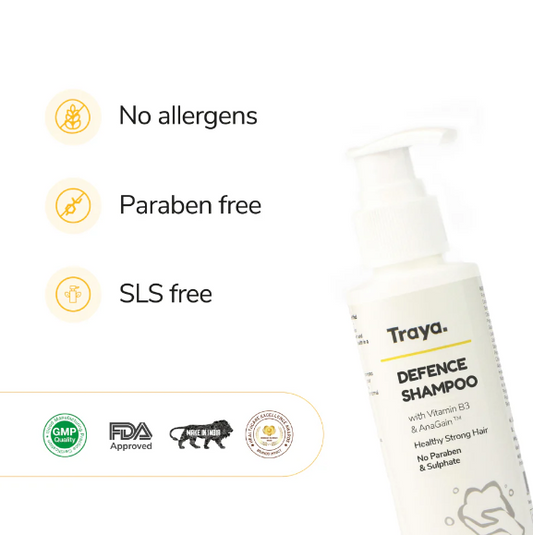
Top 10 Sulphate Free and Paraben Free Shampoo i...
Are the chemicals in your shampoo doing more harm than good? Many people don't realise that common shampoos contain harsh detergents that can strip away the natural oils of your...
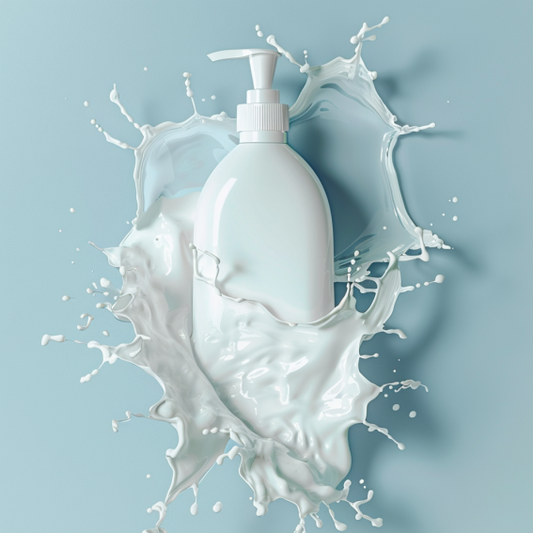
Best Shampoos for Dry and Frizzy Hair: Dermatol...
Dry and frizzy hair is more than just a cosmetic concern — it's a sign that your hair lacks adequate moisture and is struggling against environmental stressors. Dermatologists agree that...
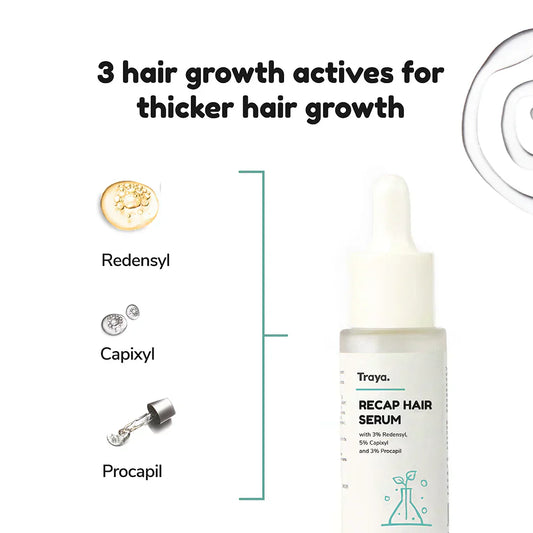
Best Serum for Hair Growth and Thickness in Ind...
In India’s ever-evolving haircare landscape, serums have emerged as game-changers for addressing concerns like thinning hair, weak roots, and dullness. While oils primarily nourish and hydrate, serums deliver active ingredients...

Top 10 Chemical Free Shampoo In india (2025)
Sulfates and Parabens have been widely spoken about recently, but what harm do they cause? Many shampoos on the market contain harsh chemicals that might make your hair feel great...
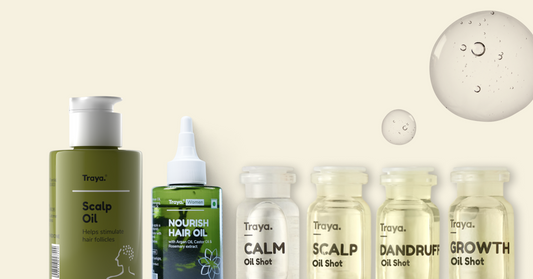
Best Hair Oil for Hair Regrowth and Thickness i...
Tired of hearing that hair oils work wonders but still not seeing results? The reason could be one of many: You might be using a hair oil that doesn’t target...
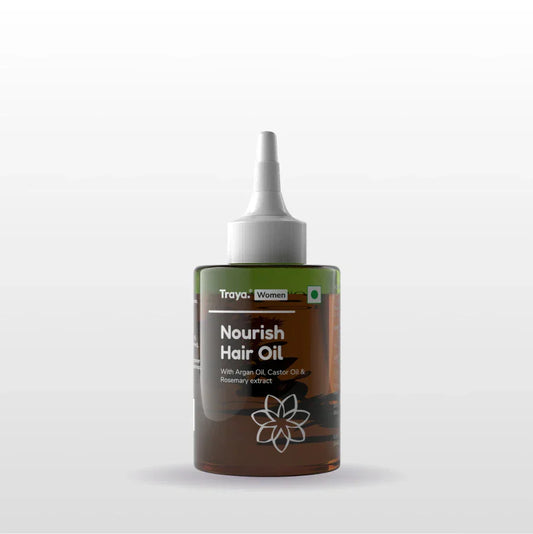
Top 10 Best Hair Oil for Hair Regrowth and Thic...
Top 10 Best Hair Oil for Hair Regrowth and Thickness in India Tried every hair oil but still not seeing results? It’s honestly frustrating! Many people struggle with hair oils...
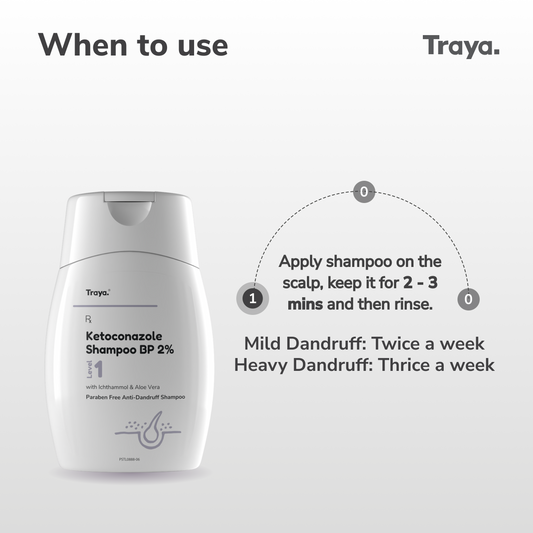
Clinically Proven Shampoo for Dandruff & Hair F...
Dandruff has always been a growing concern, and it’s only getting worse over the years. Our study of 2.8 lakh Indian women and 5 lakh Indian men found that over 70%...

Top 10 Best Ayurvedic Shampoo for Hair Fall In ...
Hair fall is one of the most common concerns today, and while Ayurveda provides powerful herbal solutions, choosing the right shampoo goes beyond just using traditional ingredients. A truly effective...



